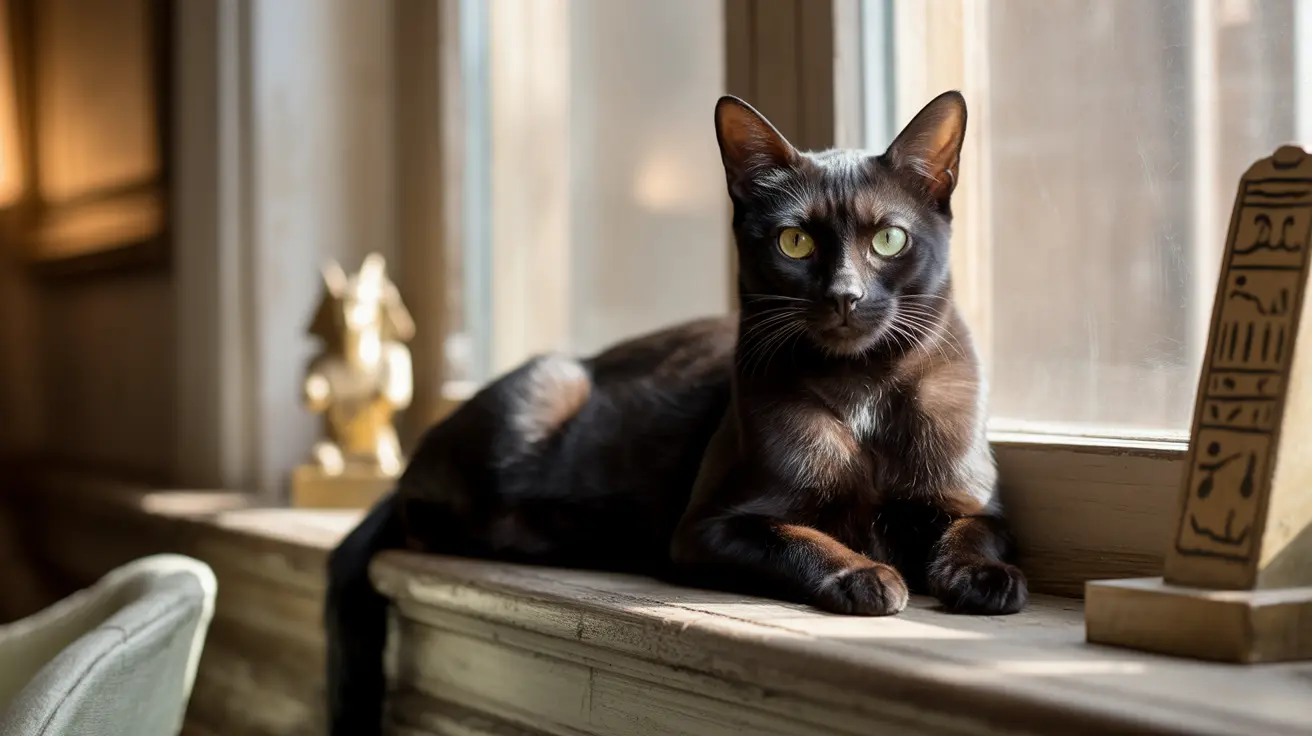Throughout history, black cats have inspired countless sayings, quotes, and cultural beliefs that reflect humanity's complex relationship with these mysterious felines. From ancient Egyptian reverence to medieval European fears, these ebony-coated creatures have left an indelible mark on our collective consciousness and language.
Let's explore the fascinating world of black cat sayings, examining their origins, meanings, and the evolving attitudes they represent in different cultures and time periods.
Historical Origins of Black Cat Sayings
Ancient civilizations viewed black cats quite differently from later medieval societies. In Egypt, cats of all colors were sacred, with black cats particularly associated with the goddess Bastet. This positive regard gave rise to sayings celebrating their protective and fortune-bringing qualities.
However, during the Middle Ages, new sayings emerged reflecting growing superstitions. The infamous "black cat crossing your path" warning became deeply embedded in Western culture, though its interpretation varied significantly by region.
Famous Quotes About Black Cats
Many notable figures throughout history have contributed memorable quotes about black cats, often challenging prevailing superstitions:
- "A black cat crossing your path signifies that the animal is going somewhere." - Groucho Marx
- "Black cat or white cat: If it can catch mice, it's a good cat." - Deng Xiaoping
- "The hardest thing of all is to find a black cat in a dark room, especially if there is no cat." - Confucius
Cultural Variations in Black Cat Folklore
Different cultures have developed contrasting sayings about black cats, reflecting diverse beliefs:
- British: "A black cat in the house is luck for the spouse"
- Japanese: "A black cat brings prosperity to young women"
- Scottish: "A black cat arriving at your home brings abundance"
Modern Interpretations and Sayings
Contemporary culture has largely moved away from superstitious fears, with new sayings emphasizing black cats' beauty and charm:
- "Black cats are mini-panthers in disguise"
- "Home is where the black cat is"
- "Lucky is the home blessed with a black cat"
Frequently Asked Questions
What are the common superstitions and cultural sayings about black cats crossing your path?
The most common saying is that a black cat crossing your path brings bad luck in Western cultures. However, in Britain and Japan, the opposite is believed - black cats crossing your path are considered lucky omens.
How did black cats become symbols of both bad luck and good fortune in history?
This duality emerged from different cultural interpretations. Ancient Egyptians and some Asian cultures saw black cats as divine and lucky, while medieval European persecution of "witches" and their supposed familiar spirits led to negative associations.
What famous quotes or proverbs feature black cats, and what do they mean?
Notable quotes include Groucho Marx's humorous take on superstition and Deng Xiaoping's pragmatic metaphor about focusing on results rather than appearances. These quotes often challenge stereotypes or use black cats as metaphors for larger life lessons.
Why are black cats associated with Halloween and witchcraft traditions?
This association stems from medieval beliefs that witches could transform into black cats. The connection strengthened during witch hunts and eventually became a standard part of Halloween imagery and folklore.
How can I help promote positive views and prevent superstition-related discrimination against black cats?
Share positive sayings and facts about black cats, support black cat adoption, celebrate Black Cat Appreciation Day (August 17), and educate others about the harmful effects of superstitions on black cat adoption rates.
Conclusion
Black cat sayings offer a fascinating window into human culture, beliefs, and the evolution of our relationship with these magnificent animals. From ancient wisdom to modern appreciation, these sayings continue to shape our understanding and treatment of black cats while reflecting broader social attitudes and values.






